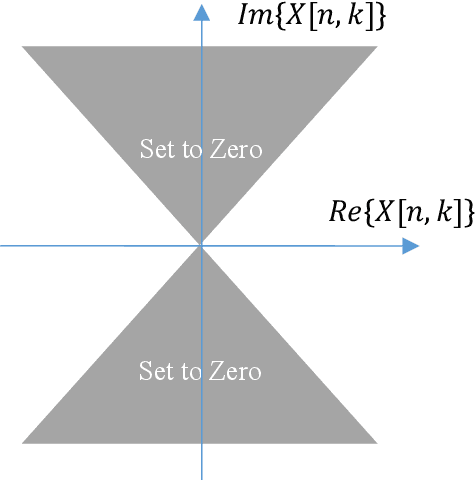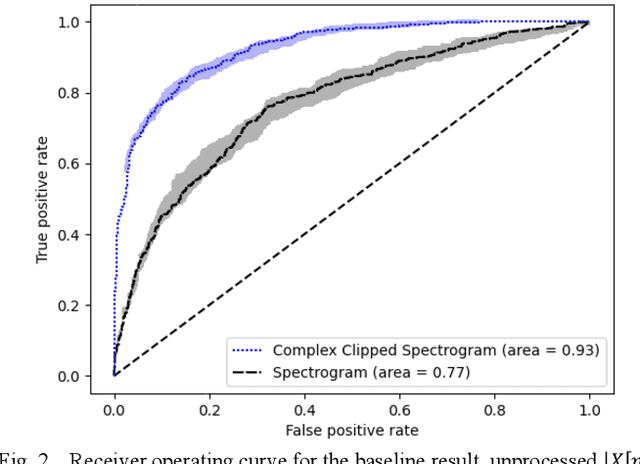Nicholas Rasmussen
Complex Clipping for Improved Generalization in Machine Learning
Feb 27, 2023

Abstract:For many machine learning applications, a common input representation is a spectrogram. The underlying representation for a spectrogram is a short time Fourier transform (STFT) which gives complex values. The spectrogram uses the magnitude of these complex values, a commonly used detector. Modern machine learning systems are commonly overparameterized, where possible ill-conditioning problems are ameliorated by regularization. The common use of rectified linear unit (ReLU) activation functions between layers of a deep net has been shown to help this regularization, improving system performance. We extend this idea of ReLU activation to detection for the complex STFT, providing a simple-to-compute modified and regularized spectrogram, which potentially results in better behaved training. We then confirmed the benefit of this approach on a noisy acoustic data set used for a real-world application. Generalization performance improved substantially. This approach might benefit other applications which use time-frequency mappings, for acoustic, audio, and other applications.
Using Deep Learning with Large Aggregated Datasets for COVID-19 Classification from Cough
Jan 22, 2022



Abstract:The Covid-19 pandemic has been a scourge upon humanity, claiming the lives of more than 5 million people worldwide. Although vaccines are being distributed worldwide, there is an apparent need for affordable screening techniques to serve parts of the world that do not have access to traditional medicine. Artificial Intelligence can provide a solution utilizing cough sounds as the primary screening mode. This paper presents multiple models that have achieved relatively respectable perfor mance on the largest evaluation dataset currently presented in academic literature. Moreover, we also show that performance increases with training data size, showing the need for the world wide collection of data to help combat the Covid-19 pandemic with non-traditional means.
 Add to Chrome
Add to Chrome Add to Firefox
Add to Firefox Add to Edge
Add to Edge